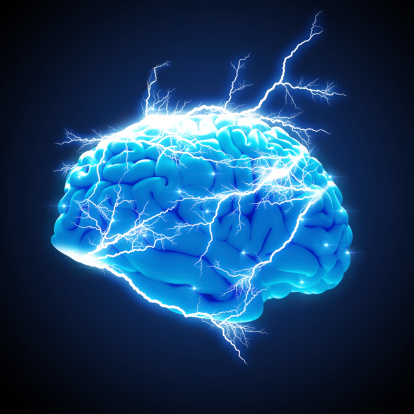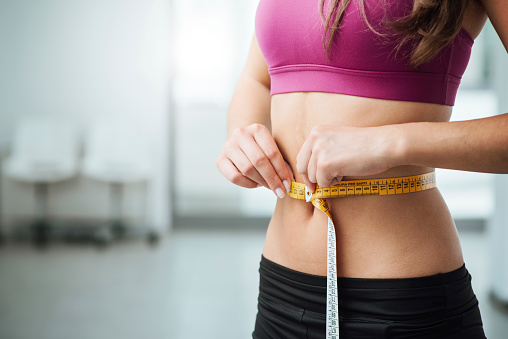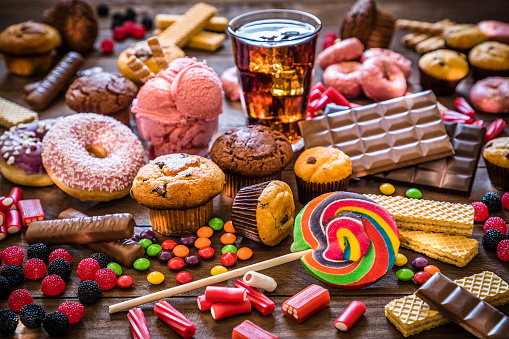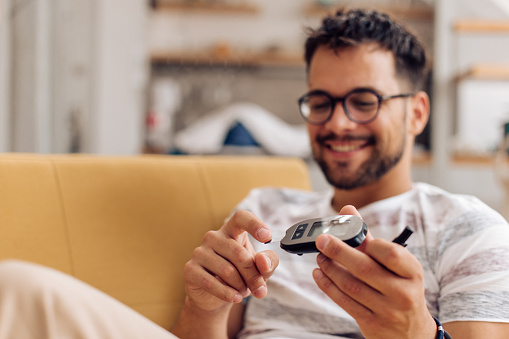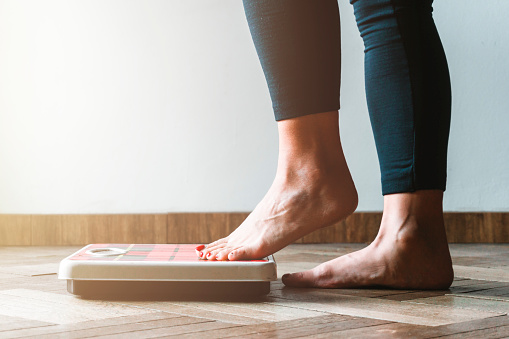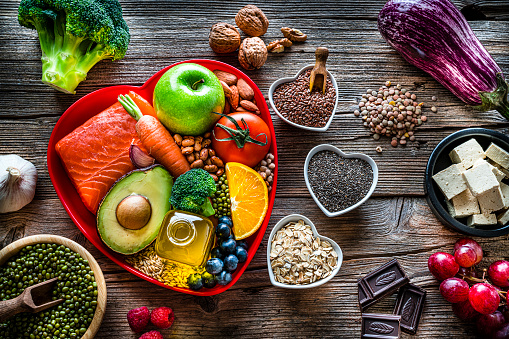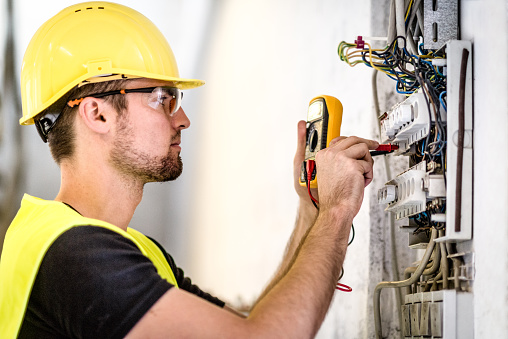How do you know if you're in ketosis? In this article, I'm going to break down five signs to pay attention to, in order to know if you are in the great land of ketosis.
As the best selling author of four books & founder of Keto Kamp where our mission is to educate and to inspire 1 billion people, it is my duty to help you succeed in your health goals. I'm super grateful you chose this article today, thank you!
So far, in our ten-part series, we have covered the very important details around the history of Keto and nuances that define clean keto foods & dirty keto foods, how to deal with common symptoms of keto - like the Keto flu, brain fog & fatigue and the specifics around the macros and calories on keto. So if you haven’t already caught up on the previous articles, I highly suggest you do.
Let's talk about ketosis. The great land of ketosis. How do you know if you're in ketosis? I'm going to give you five signs to pay attention to here and I'm going to teach you the optimal ways to test for ketosis. We’re going to talk about testing with urine, breath and blood. Which is the most accurate way to test, what are the optimal numbers to hit and by the way, the following methods will teach you how to know if you're in ketosis without even testing.
The first sign to look for, to know if you're in ketosis is, mental clarity. Your brain fog is gone. You’re actually recalling names very easily, you are able to adapt to stress and you have a focus and clarity that’s hard to describe. You know it when you feel it. You're super productive. You're on your A game, and you feel damn good. The reason is, ketones fuel the brain much more efficiently than glucose.
Did you know, breast-fed babies go in and out of ketosis? [1,2,3] It's because breast milk has saturated fat and cholesterol, which actually helps the development of the brain! Beta hydroxy butyrate, one of three ketones produced by the liver, actually crosses the blood brain barrier and it turns your brain right on. The brain is a fatty organ, it is only 2% of our body weight, but it sucks up about 20% of your body's energy needs. And guess what it's made up of? Mostly fat, about 70 to 80% of your brain is made up of fat. Your brain loves fat, so when you're in ketosis, you're giving your brain the building blocks it needs. That's the first sign right there. You are mentally sharp, no more brain fog, no more brain fatigue. You feel like a Keto Rockstar.
The second sign to pay attention to is, you're losing weight. Look, a lot of people come to keto for the weight loss but they stay for the health because when you follow a healthy keto lifestyle, weight loss comes as a side effect. It's a byproduct of getting healthy; we get healthy to lose weight. When you start dropping fat, burning fat, you are in ketosis. Your body has now stopped burning the glucose and the sugar, burned through its glycogen stores & sugar reserves and now it's burning your fat cells for energy. That's what we want.
So you're losing two pounds, three pounds, four to five pounds per week when you are in ketosis because your body is doing what it's designed to do, which is to burn fat. It is our primal birthright. We have been using keto for 2.5 million years. Burning fat as a side effect of ketosis.
Just one little caveat here. When you are losing weight on keto, you might feel a little worse before you feel better. The reason being, we store toxins in our fat cells, and let's face it, we live in a time and a place in this world where we are exposed to more toxins than ever. Toxins enter the body through breathing, eating, touching our skin, etc. The body is so smart. The number one priority of the body’s innate intelligence is survival. All it wants to do is survive. So when toxins enter the body, guess what happens? The body does not want those toxins to enter our vital organs like our heart, kidney or brain. So it activates the PPARY pathway, which actually signals those toxins to go and hide into fat cells or even creates new fat cells for those toxins to go live in.
The body is doing this as a survival mechanism. It's amazing, but the problem is this, when you start losing weight and burning fat on keto, which you will do now, the body cannot burn those toxins, but as it burns the fat cells, those toxins end up getting dumped into the bloodstream, which may cause you to not feel so good. If you are not sure about your toxin load, take my free toxicity quiz to get your score today.
So what are some things you can do? Bitters! Bitters, are better! Bitters will help your liver stimulate bile which will help take those toxins and get them out of the body. Here's a list of bitters I want you to incorporate on keto as you start burning fat. Arugula, dandelion greens, dandelion tea, ginger, ginger tea, lemon, lime and apple cider vinegar. Squeeze some lemon or lime on your keto meats and proteins. There are also herbs you can smell to stimulate the liver such as rosemary, basil and thyme. I also think it's a good idea to take an ox bile supplement. I use Systemic Formulas D digest. You can purchase this supplement here.
The third sign to look for, to know if you're in ketosis is that you can skip a meal, maybe two, and feel great. When you skip a meal and feel great, it means your body now has the metabolic flexibility to go from burning sugar to tapping into your fat cells and pulling energy from your fat cells. This actually sustains your glucose and insulin levels, to ensure you have peak energy levels and don't get hangry or have brain fog or get irritable because your body's getting those calories from its own body fat.
Isn't that super cool? You could get your calories from that plate of food in front of you. Or you can get your calories from your belly, butt, hips and your thighs. It's your choice. So that's the third sign to pay attention to, you skip a meal, and you feel like a rockstar. The opposite is true. If you skip a meal, and you feel like crap that's a sign that you're not in ketosis. You're not metabolically flexible, and there's still some work to do.
Question of the day: How do you feel when you skip a meal? Do you feel great or do you get irritable and hangry? Comment below and let me know how you feel when you skip a meal.
The fourth sign to pay attention to, to know if you are keto & fat adapted is that your sugar and carb cravings are gone. When we are in ketosis, we adjust and reset our metabolism but also our palate. So we start craving more healthy fats & proteins and less of the sugars & carbs. You don't have to grab a protein bar or a shake or some sort of sugary beverage every two to three hours. You're not craving that anymore. It's gone.
I've witnessed sugar addicts, myself included, reset their entire palate, cravings gone, like magic, disappeared. By the way, I was a carb-aholic and snack-aholic. I was a pure sugar burner; I was addicted to sugar. Now I have come to find out that the same part of our brain that lights up with a sugar and carb addiction also lights up with a cocaine addiction, making sugar as addicting as cocaine in this scenario.
The fifth way to know if you're in ketosis, which is actually the most accurate way to know is to test. There are three different methods for testing ketones, we have urine, breath and blood.
What is the best way to test for ketones?
Let's just take urine out of the equation. Unfortunately, ketone urine strips are not accurate, especially after the first couple of weeks of doing keto. Once your body and your brain is efficient at using ketones, it will not show up in urine. Meaning you're going to get frustrated, wondering, “why am I not in ketosis? I'm doing everything right!”, not realizing that your body's actually using those ketones, which is what we want. Needless to say, we don’t like urine strips here at Keto Kamp, so you can cross urine strip testing off the list.
The second option is, breath. Up until recently, I would say to stay away from breath. It wasn't really accurate but I came across a meter called biosense. I actually have it and they actually have created the first accurate breath ketone meter if you want to check them out. Click here, and use the coupon code ketokamp at checkout for $20 off your device.
Now, I want to focus on blood testing since it is the most accurate. Personally, I use keto Mojo. I love this machine because it tests your glucose and your ketone markers. You can purchase your Keto Mojo device here. This is how you know if you're in ketosis. If you test your blood ketones, which is beta hydroxy butyrate (BHB), and it registers as 0.5 or higher. Hey, congratulations, you're in the great land of ketosis.
The goal is not to necessarily have high amounts of ketones. We don't chase ketones here at Keto Kamp, we chase results. The sweet spot I've seen for most people is 0.8 to 2.8 on the keto Mojo machine. We also want to check glucose because if we have high glucose and high ketones, the body is going to burn the glucose first since glucose is a toxic fuel source and your body wants to get rid of that thirst. We want optimal numbers of glucose. The optimal numbers of fasting glucose is 70 to 90. Keto Mojo will give you that on a separate glucose strip. The optimal numbers for ketones, as I mentioned is typically between 0.8 to 2.8.
Now for some advanced testing methods for you. One hour after eating a meal, which is called postprandial, test your glucose again, if your glucose is 120 or below, that's a great sign. That means your body is metabolically flexible. That keto meal did you well. Two hours after eating a meal, you want your glucose to be 100 or less. Those are the optimal markers.
Please comment and let me know if you do test. Let me know what your numbers look like in the comment section down below.
A common question that I get all the time is, “okay, I'm doing keto, I’m eating all these saturated fats and cholesterol, but my doctor is telling me that I have to go on a statin because my cholesterol is high; my parents are worried that I'm going to have a heart attack, my friends are saying I'm going to have a heart attack; does keto cause high cholesterol and if so, does that increased your risk of a heart attack or a cardiovascular event?”
I want to bust the myth and break it all down for you and give you optimal markers to request from your doctor. In the next article, right here, you'll learn all about cholesterol and keto, and the optimal ranges to look for. This is the conversation you'll have with your doctor so you are empowered and understand how cholesterol and keto works.
If you'd like to watch a video of me breaking down this article, click the play button below.
What are the macros and calories for the ketogenic diet? I'm going to break it all down for you so you can also get amazing results with keto. I’ll also share the details on the nine specific blood markers to request from your doctor to determine if keto is working for you.
As the best selling author of four books & founder of Keto Kamp where our mission is to educate and to inspire 1 billion people, it is my duty to help you succeed in your health goals.
I'm super grateful you chose this article today. It's going to help you out on your ketogenic journey.
Previously, in this ten-part series on how to master keto, we talked about the very important details around the history of Keto and nuances that define clean keto foods & dirty keto foods and how to deal with common symptoms of keto - like the Keto flu, brain fog and fatigue. So if you haven’t already caught up on the previous articles, I highly suggest you do.
Now we’re going to break down the macros, the calories and the structure for you to get those results you want on keto. As you know, when you go on Dr. Google and you type in “what are the macros for the keto diet?” or “what is the keto diet?” you'll get over 100 million results! That can cause a lot of confusion.
The general percentages for your macros is - 85% of your total calories come from fat, 15% from protein and about 5% from carbohydrates. The issue with just following percentages is that the body is more sophisticated than just calories in versus calories out, which we’re going to talk a little bit more about.
Here's what I want you to understand. You can get your fat and calories from that ketogenic meal in front of you or you can get your fat and calories from your body fat. That's right! The goal here is to teach the body to start burning its own body fat. Keto is not about eating a bunch of bacon and fat and cheese. It's about going low carb enough for the body to start burning its own body fat, allowing your liver to produce ketones to fuel the brain.
It’s important to note, that you actually need to increase your protein intake in the first 30 to 60 days on keto. When you do this, not only is it going to help prevent any muscle loss but protein is unique because it activates satiety hormones and chemicals such as cholecystokinin, leptin, glucagon-like peptide and peptide YY.
All you need to know Keto Kamper, is that this helps you feel satiated & full. This prevents you from snacking. This prevents you from raising insulin in between your meals. That's what we want. So it's very important to get 40 to 50 grams of protein at every keto meal that you eat, especially the first 30 to 60 days.
This is exactly what I teach in the Keto Kamp Academy. So increase the protein, increase the healthy fats and that's going to help you feel satiated & full.
What are the best foods to eat on the ketogenic diet? Some of my favorite protein sources are grass fed grass finished beef, lamb, pastured eggs, bison and wild caught fish. I have a whole list for you in a previous article I did in this series; it's called the Keto Kamp Blueprint, and you can download it for free here.
But let's talk a little bit about the amount of calories you should you have on keto. The human body is not a bank account. It's not a math equation. It's not a calculator. The human body is a complex chemistry lab and we need to start treating it as such.
Do calories matter? Yes. Are they important? No. They are a huge distraction. To what really matters. What really matters is cell metabolism, hormones and reducing inflammation. All the tips I'm teaching you in this article and in all the articles and videos on my keto Kamp YouTube channel.
Food can upgrade or downgrade your biological software. Every bite determines a signal inside of your body. For example, you can eat 1000 calories of brownies versus 1000 calories of a kale salmon salad.
The person who has 1000 calories worth of brownies, they're going to store fat. They're going to have a fluctuation in their energy levels and they're not going to feel like a rockstar.
The person who has 1000 calories worth of a keto friendly meal, they're going to burn fat, they're going to have better energy levels and they're going to have hormones that do their job.
Same 1000 calories, completely different response.
Calories are a distraction. It's time to develop a relationship with the body where we know we had enough food, and we can stop eating. We have mechanisms in place to teach this intuition. There are no receptor sites within the body that count calories. Therefore, we need to stop counting calories.
Here’s my question of the day: Have you ever counted calories or ever been told and maybe you did it yourself, “exercise more, eat less, create a caloric deficit”? Comment below and let me know if you've ever tried it and if it ever gave you a long term results.
The bottom line is this, we can choose to eat high quality, keto friendly foods that will elicit a healthy metabolic response or we can choose to eat poor quality food, dirty keto foods that will elicit a negative metabolic response. The decision and choice is yours. This is why here at keto Kamp we teach you to not focus on weight loss. Instead, focus on health focus on reducing inflammation because we do not lose weight to get healthy, we get healthy to lose weight.
Dr. Berg says that all the time, and he's absolutely correct. When you get healthy, when you start eating healthy keto foods and doing it the right way, the weight will come off as a side effect, your symptoms will go away by default. And that's what we're all about here at Keto Kamp. We look at health from a cellular lens.
Here are some non scale victories I want you to pay attention to. Then I'm going to outline the nine markers to request from your doctor. Pay attention to the number on the scale even take that marker on day one but go seven weeks before you test the number on the scale again, because the number on the scale should not determine whether something is working for you or not working for you.
There can be so many reasons why the number on the scale, your weight, will fluctuate up and down. I'll give you a couple of reasons: soreness from a workout - you'll retain water, which can show on the scale. For you ladies, if it’s your monthly cycle, you'll retain water, it might show on the scale. A poor night's sleep, you'll have higher levels of cortisol, it might show on the scale. It's going to just lead you down a road of frustration and discouragement. We're not about that. So yeah, take it on day one, but also pay attention to non scale victories. Pay attention to how your energy levels are. Are they improving? Do you no longer have to take a nap in the afternoon? What about your sleep? What about your skin? What about specific measurements like body fat measurements? Take some photos. These are very important markers to have and it's just for you to keep track of your results.
Here's the final thing that I want to share with you. These are nine important blood markers that I want you to write down, bring it to your doctor, request your doctor have this done for you and track this. If you see improvements in these markers, then the keto diet that you're following is doing you great good.
As I share this with you, I want to thank you for reading this article and if you're getting any value from this take a second here to comment below and share what you loved and what you learned.
Here it is, get a full lipid panel. Lipid means cholesterol & fats. Get total cholesterol total HDL, total LDL and total triglycerides as well as a test called NMR, Nuclear Magnetic Resonance. An NMR test is going to look at not just your total LDL, but also the size of the particles. LDL is split up into large & fluffy particles and small & sticky particles. The large & fluffy are fantastic, as they actually clear out plaque in your arteries. The small & sticky are the ones that get lodged into your arteries. The NMR test will show the amount you currently have of each type of particle.
Not surprisingly, a pet peeve of mine is when I hear somebody say “my doctor saw that my total cholesterol and total LDL was high, so he wants to put me on a statin.” Let's be clear, more people die of heart attacks or heart disease with normal to low cholesterol than high cholesterol. Simply looking at the total LDL does not give you the full picture; however, looking at the entire scope of your lipids will give you a more accurate picture.
Additionally, you want to look at other inflammatory markers such as High Sensitivity C-Reactive Protein, Fibrinogen and Homocysteine. These are oxidative stress and inflammatory markers that we want to look at in combination with those cholesterol particles, to get a more complete picture. Also, get your A1C done which is your three month average of your fasting blood sugars. Get your fasting glucose done, you could do it by yourself or with a doctor. Fasting insulin is also important to get done. Lastly, a full thyroid panel with the antibodies to see if you have auto immune, and not just TSH, but all the markers T3, reverse T3 (rT3), free T3, T4, free T4.
These are markers that are going to give you the best data to let you know if keto is working for you or not, not the number on the scale, not chasing calories or macros but chasing health. That's what we're all about here at Keto Kamp
The next question I know you're asking is “how do you know if you are in ketosis?” or “how do you test and look for optimal markers of glucose and ketones?” Well, there are five signs. These are clear signs that let you know you're in ketosis and that you're doing a good job. I’m going cover all the details in the next article, which can be found right here.
Click the play button below to watch the video version of this article.


